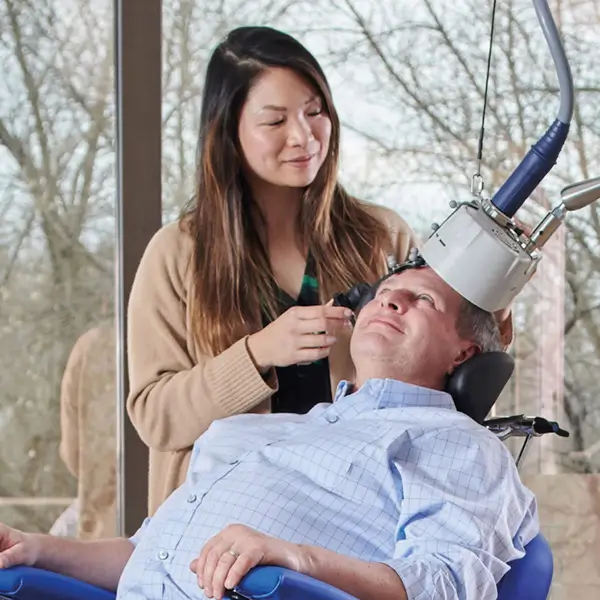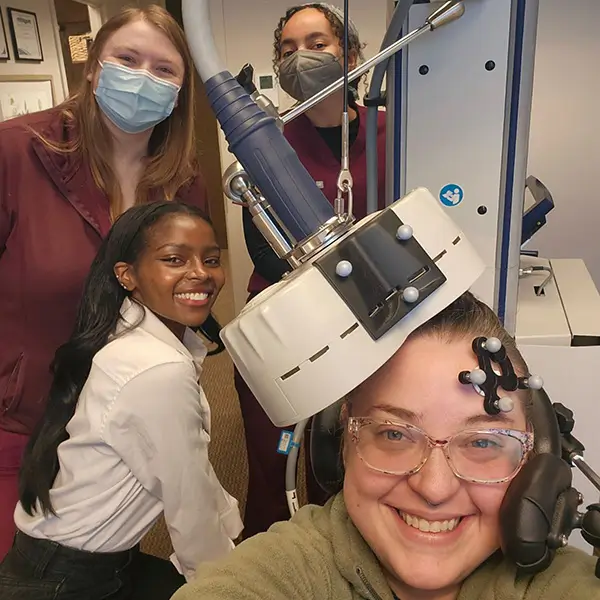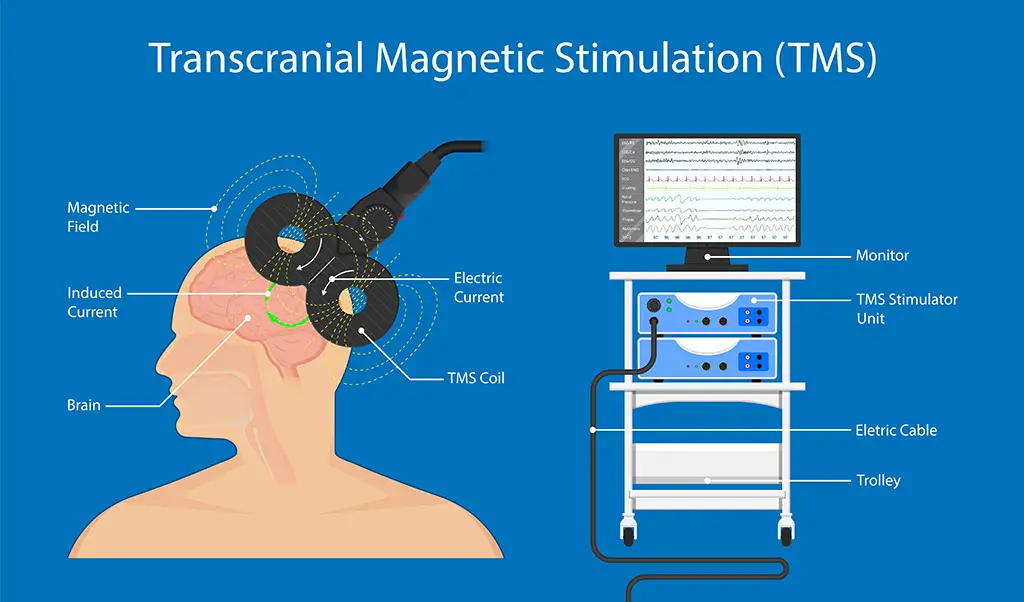Discover the Healing Power of TMS Therapy


Transcranial Magnetic Stimulation (TMS) is a safe, FDA-approved, and drug-free treatment that offers lasting relief with little to no side effects. Take the first step toward a brighter future today!

Depression can make it feel like there’s no way forward, but hope is within reach. If traditional treatments haven’t worked for you or have caused unbearable side effects, Transcranial Magnetic Stimulation (TMS) therapy offers a breakthrough solution. This FDA-approved, non-invasive treatment is designed to target depression at its source, providing lasting relief with little to no side effects. You don’t have to struggle in silence—there is a path to healing. Take the first step toward reclaiming your life with TMS therapy.

Benefits of Transcranial Magnetic Stimulation (TMS)
- Non-Invasive procedure: TMS is a non-invasive procedure, meaning it does not require any form of surgery or anesthesia.
- Minimal Side Effects. Outpatient Procedure: TMS is typically performed on an outpatient basis, allowing patients to return home immediately after treatment sessions. This convenience reduces disruptions to daily life and eliminates the need for hospitalization
- Targeted Treatment: precisely target areas of the neural tissue. This targeted approach may result in more effective treatment
- Positive Results: Many patients experience improvement in symptoms within a few days of starting TMS therapy, unlike some medications that may take weeks to become effective
- Long-lasting Effects: Studies suggest the benefits of TMS therapy can be felt beyond the treatment period, providing lasting relief from symptoms


